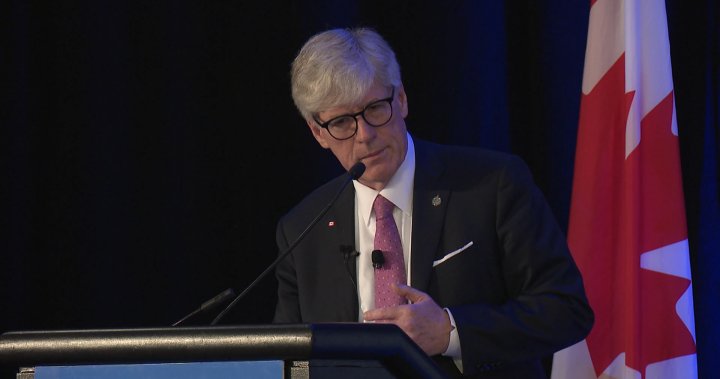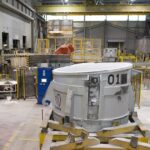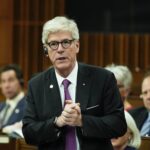The federal government unveiled a significant financial commitment to Alberta’s carbon capture initiatives on Thursday, though questions linger about the program’s long-term viability amid political tensions and economic concerns.
Federal Energy Minister Jonathan Wilkinson announced $210 million in funding for front-end engineering and design (FEED) studies for seven carbon capture projects across Alberta—a critical first step before companies commit billions to full-scale construction.
“These investments represent Canada’s commitment to developing practical solutions that will help achieve our emissions reduction targets while creating sustainable jobs in Alberta’s energy sector,” Wilkinson said during the announcement in Edmonton.
The funding comes from Ottawa’s $8.6 billion Carbon Capture, Utilization and Storage (CCUS) investment tax credit program, which aims to offset up to 50 percent of the costs for these technologies. Among the major beneficiaries are energy giants Suncor, Cenovus, and Canadian Natural Resources Limited, all of which have projects included in this round of funding.
Carbon capture technology, which traps emissions before they enter the atmosphere and stores them underground, has been promoted as a crucial bridge technology as Canada transitions toward its net-zero goals. Alberta’s industrial heartland near Edmonton is particularly well-positioned for these projects due to its geological advantages for carbon storage.
However, the announcement arrives amid palpable tension between federal and provincial governments. Alberta Premier Danielle Smith has repeatedly criticized Ottawa’s environmental policies, claiming they disproportionately harm Alberta’s energy sector.
“While we welcome this investment, it represents only a fraction of what’s needed,” said Alberta Environment Minister Rebecca Schulz in a statement. “The federal government continues to move the goalposts on emissions targets while underinvesting in practical solutions.”
Industry experts note that while the funding is significant, the true test will be whether companies proceed with full implementation after completing the engineering studies. The Pathways Alliance, a consortium of oil sands companies, has indicated that final investment decisions for their planned $16.5 billion carbon capture network depend on additional government support and regulatory certainty.
“These FEED studies are just the beginning,” said Chris Severson-Baker, Executive Director of the Pembina Institute, an environmental think tank. “The real challenge will be securing the tens of billions needed for construction and ensuring these projects deliver meaningful emissions reductions.”
The funding announcement comes as the Liberal government faces criticism from environmental groups who argue carbon capture represents a lifeline to fossil fuel industries rather than a transition away from them. Meanwhile, Conservative opposition has questioned the technology’s cost-effectiveness compared to other emissions reduction strategies.
Economic analyses from the Royal Bank of Canada suggest that while carbon capture projects could create thousands of jobs during construction, the long-term economic benefits remain uncertain without a substantial price on carbon or guaranteed markets for captured CO2.
As Canada navigates the complex landscape of climate policy and energy transitions, the success of these Alberta carbon capture projects may ultimately hinge on a delicate balance of technological innovation, political cooperation, and sustained financial commitment.
Will these initial investments catalyze a transformation in Alberta’s energy sector, or will political and economic uncertainties undermine Canada’s carbon capture ambitions before they truly begin?














